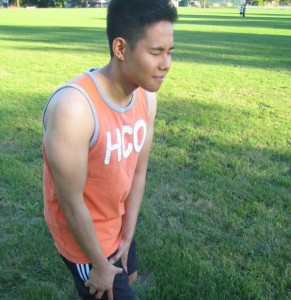Muscle pain, also muscle ache, is a very common complaint, not just by athletes but even by most people occasionally. It can involve more than just one muscle. Muscle pain does not necessarily involve just the muscle, but may also involve the ligaments (connects bones to bones), tendons (connects muscles to bones) and fascia (connects muscles, organs and other soft structures of the body such as blood vessels, nerves, etc.).
It can be caused by a variety of diseases but can also be caused by overuse, tension or minor injury. Pain typically begins during or after the activity, thus the cause of pain is usually apparent. Muscle pain can range from minor to severe, which can last for a few hours to several months, and is typically localized in a particular region. It can occur anywhere in the body from down the legs to up in the neck. The medical term for muscle pain is myalgia.
Causes of Muscle Pain
When muscle pain is caused by overuse, tension or minor injury, the pain istypically localized. In contrast, when the muscle pain is systemic or body wide, it is typically caused by an infection or disease. The common causes of muscle pain include:
- Localized pain
- Overuse: frequent use of the muscle too soon during physical activity
- Tension or stress
- Minor injury: sprains and strains
- Systemic pain
- Infections (e.g. flu, malaria, polio, muscle abscess)
- Fibromyalgia
- Lupus
- Hypothyroidism
- Electrolyte imbalance
- Certain drugs medications such as, ACE inhibitors, statins and cocaine
First Aid Management of Muscle Pain

Muscle pain can usually be managed at home without developing complications. With sufficient home treatment, muscle pain can be managed. The following steps are generally recommended in cases of pain management:
- Rest the affected area. Do not attempt to do any rigorous or strenuous activity while experiencing muscle pain as it may exacerbate the pain. Avoid stress.
- Take over-the-counter (OTC) pain medications such as, paracetamol and ibuprofen to relieve of pain.
- Apply ice compress over the affected area to help alleviate pain and reduce inflammation. After the first 24-72 hours, apply hot compress over the affected area to soothe the aching muscles.
- Massage the affected muscles.
- Perform regular exercise, such as swimming and cycling.
Prevention of Muscle Pain
Localized muscle pain is preventable. The following tips are generally recommended to avoid muscle pain:
- Stretch before and after exercising. Before exercising, warm up. Cool down after.
- Drink plenty of fluids before, during and after exercise. It is necessary to remain hydrated throughout any activity.
- Stretch every hour if one works in a particular position to reduce risks for muscle tension.
Disclaimer: This article is for general information and should not be substituted for medical treatment. To learn how to manage muscle pain and other body pains, enrol in First Aid Courses with St Mark James Training.
Source:
Muscles Aches (2011). National Institutes of Health: MedlinePlus. Retrieved September 8, 2013, from http://www.nlm.nih.gov/medlineplus/ency/article/003178.htm